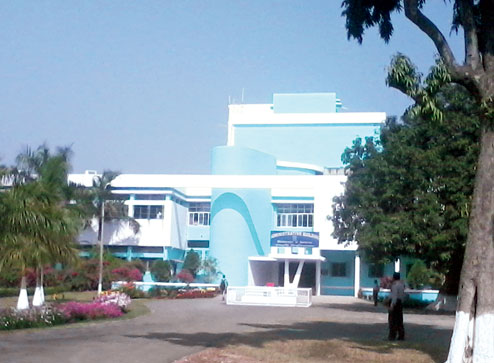
Kalyani, June 25: The Bengali diaspora has arrived. After conquering many places in the world, it will now be a subject of study at Kalyani University.
Tomorrow, the Centre for Bengali Diaspora will be inaugurated at the university by governor Keshari Nath Tripathy, the chancellor of the university.
Not just Amartya Sen, Amitav Ghosh or Gayatri Chakravorty Spivak. The centre aims to recognise the largely undocumented contribution of unknown, but remarkable Bengalis from the two Bengals who spread throughout the world since Independence. The centre is the brainchild of vice-chancellor Rattanlal Hangloo, Kashmiri by birth, but "Bengali by heart" and an ardent admirer of Ashutosh Mukhopadhyay, the model vice-chancellor for him.
This is the first time such a centre is being set up in the country. "No university in the country has so far set up an independent centre for research, analysis and enumeration of the diaspora of a particular community," says Hangloo proudly.
"The richness of Bengali literature and culture has always fascinated meDespite its abundance, I always felt that there is a lot more that has remained unknown to the world. This is the contribution of the Bengali diaspora," said Hangloo.
To begin with, the focus will be on works of literature, art and culture, achievements in all fields will come under its scope, including science and technology and also participation of the diaspora members in the governance and administration of other countries.
The usage, transformation and development of Bengali language abroad will be another focus. Bengali dialects spoken by the diaspora and pronunciations will be explored.
Word is being sent out to Bengali writers and academics abroad to spot works of non-resident Bengalis. Once the centre gets its own building, it will make an archive of the works, with books, CDs and on microfilm. A website is being planned.
Now the centre will function from the office of the dean of arts.
Initially, certificate courses will be offered.
Students will be encouraged to do research on the community for the PhD and MPhil.
Hangloo has set up the centre with the help of Abul Kalam Azad foundation, a research institute which has helped to fund the centre. The university has sought help from the University Grants Commission.
At the root of the idea, however, is an emotion.
The diaspora needs to be connected with its origin, because however rich the work of Bengalis living abroad is, there is a disconnect between them and their motherlands, feel all those associated with the centre.
Sumit Mukherjee, dean of arts, heads a committee of six set up for the centre. It has begun to identify the Bengali diaspora in the UK, US, Australia and South Africa. The university has assessed that around 15 per cent of non-resident Bengalis live in the UK, the biggest segment of Bengalis abroad.
Mukherjee said that during interaction with many non-resident former students, the committee has noticed an "identity crisis".
"They love their mother land, but due to isolation from it, a sort of void has been created within them," he said.
"While conducting studies on the Bengali diaspora, we would simultaneously like to develop the centre as a bridge between the non-resident Bengalese and their motherland," said Sukhen Biswas, a senior professor of Bengali literature who is a member of the committee.
It has contacted well-known members of the diaspora. "We have spoken to UK-based author Ketaki Kushari Dyson, Gayatri Chakravorty Spivak of Columbia University, Prithiwindra Mukherjee, a former member of French national centre for scientific research in Paris, and many other eminent non-resident Bengalis. They have assured help," Biswas said.
On inauguration day, the university will organise an appropriately-titled symposium: "Offspring of Bengal in distant land, quest of the disanchored".
The Maulana Abul Kalam Azad Institute of Asian Studies will sponsor the symposium.
US consul general in Calcutta Helen LaFave and deputy high commissioner of Bangladesh in Calcutta Zokey Ahad will attend the inauguration. A large number of former students of the university have been invited to participate at the symposium.










